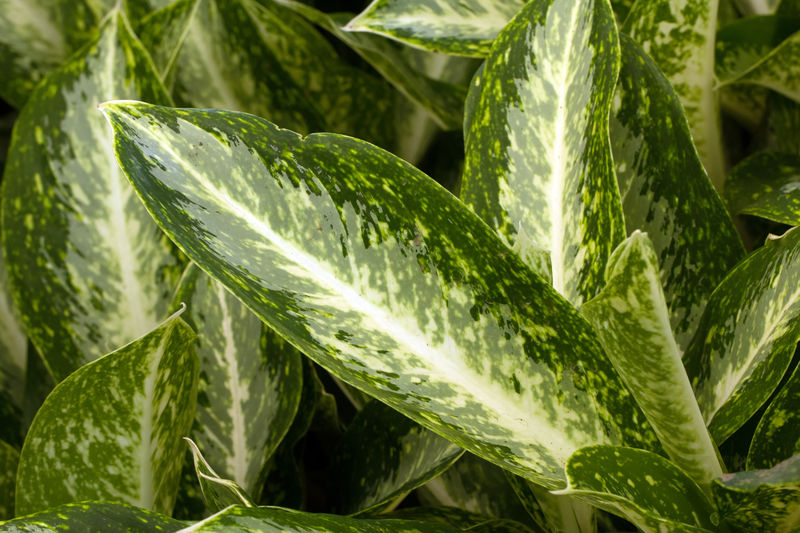Your Backyard Garden: A Key Ally in Climate Action
Posted on 26/06/2025
Your Backyard Garden: A Key Ally in Climate Action
Discover how turning your backyard into a thriving garden not only improves your lifestyle, but also serves as a powerful tool in the fight against climate change. From sequestering carbon to supporting local biodiversity, your garden is more than just a green space -- it's a climate hero waiting to bloom.

Why Backyard Gardens Matter in the Climate Crisis
Climate change is one of the biggest challenges facing humanity today. While governments and industries are often seen as the primary actors in climate action, individuals can make a profound impact right from their homes. Your backyard garden is a potent ally in tackling climate change, offering measurable environmental benefits including carbon sequestration, temperature regulation, and biodiversity preservation.
- Sequesters carbon dioxide from the atmosphere
- Improves local air and soil quality
- Promotes sustainable food practices
- Enhances habitat for pollinators and native wildlife
- Reduces urban heat island effects
The Science: How Gardens Combat Climate Change
1. Carbon Sequestration: Plants as Climate Warriors
Through the process of photosynthesis, all plants absorb carbon dioxide (CO2) from the air and store it in their roots, stems, and leaves. Every flower, shrub, and tree you plant in your backyard garden actively removes greenhouse gases from the atmosphere!
- Trees and perennial plants store carbon for years or even decades.
- Compost and healthy soil further lock away carbon, acting as long-term reservoirs.
2. Gardens as Nature's Cooling System
Urban and suburban landscapes covered with concrete and asphalt absorb and radiate heat, worsening local temperatures - a phenomenon known as the "urban heat island" effect. By contrast, lush backyard gardens reduce surface temperatures through shade and evapotranspiration, naturally cooling your home and neighborhood.
3. Supporting Biodiversity: The Web of Life
Backyard gardens provide food, shelter, and breeding grounds for birds, insects, and pollinators. By recreating diverse ecosystems, gardens reverse biodiversity loss and help stabilize climate through resilient natural systems.
- Native plants support local insect and animal populations.
- Flowering plants attract bees, butterflies, and beneficial insects crucial for pollination.
The Climate-Friendly Garden: Practical Steps
1. Choose Native & Drought-Resistant Plants
Plants adapted to your local climate require less water and are more resilient to environmental stress. Native species also support indigenous fauna, increasing your backyard garden's ecological value.
2. Create a Compost System
Food scraps and green waste decompose naturally in a compost pile, producing rich organic matter for your soil while diverting waste from landfills (where it would emit methane, a potent greenhouse gas). Home composting is a simple step with massive climate benefits.
3. Grow Your Own Food: The Low Carbon Diet
When you cultivate vegetables, herbs, and fruits in your backyard garden, you reduce the demand for food shipped over long distances. Locally grown food has a smaller carbon footprint and allows you to use organic, pesticide-free practices.
- Try vertical gardens to maximize small spaces.
- Plant a fruit tree for shade and harvests for years to come.
4. Save Water with Smart Gardening
Incorporate rain barrels, drip irrigation, and mulching to reduce your garden's environmental impact. Efficient water use not only conserves resources but also strengthens your garden's role in climate adaptation by building drought resilience.
5. Avoid Chemicals for a Healthier Environment
Synthetic fertilizers and pesticides contribute to pollution and disrupt soil carbon cycles. Shift to organic alternatives to protect the delicate balance of your garden's ecosystem - and play your part in climate-friendly gardening.
Backyard Gardening: Benefits That Go Beyond Carbon
While the environmental benefits of backyard gardening are extensive, the positive ripple effects stretch even further.
- Improved Mental & Physical Health: Gardening reduces stress and increases physical activity.
- Community Cohesion: Sharing seeds, harvests, and gardening tips builds local connections.
- Educational Opportunities: Backyard gardens are living classrooms for sustainability and environmental stewardship.
- Economic Savings: Growing your own food and using rainwater saves money on grocery and utility bills.
Your Garden's Impact: Small Patch, Big Results
It's easy to underestimate the significance of your own green space. Yet, collectively, backyard gardens have immense potential in climate mitigation and adaptation.
- Carbon Sinks: If every suburban household planted just one tree, millions of tons of CO2 could be removed from the atmosphere each year.
- Resilient Local Ecosystems: Pollinator-friendly gardens can help reverse the decline in bees and butterflies, which are critical for food production worldwide.
- Reduced Pressure on Food Systems: Homegrown produce reduces the carbon cost of industrial agriculture and food transportation.
Every backyard, balcony, and community plot matters in the fight against climate change. By making climate-smart choices in your garden, you're contributing to a global solution.
Community Gardens & Urban Agriculture: Scaling Up Climate Action
While individual efforts are crucial, collective action magnifies the impact. Community gardens, urban farms, and school gardens are now spreading across cities, transforming concrete jungles into lush, productive landscapes.
- Shared gardens revitalize neighborhoods, improve air quality, and provide affordable healthy food.
- Urban agriculture supports climate justice, bringing environmental benefits to underserved communities.
If you don't have your own space, consider joining a local gardening group or volunteering at a communal plot. Every plant makes a difference in the climate equation.
Backyard Garden Climate Action: Tips to Get Started
1. Assess Your Space and Sunlight
Begin by observing how much sunlight your yard or balcony receives. Most vegetables and pollinator plants need about six hours of sun daily. Design your climate-action garden based on your site's unique conditions.
2. Plan for Diversity
- Mix annuals and perennials.
- Combine deep-rooted trees and shallow-rooted vegetables.
- Include a variety of colors and bloom times to attract pollinators all season.
Diversity strengthens your garden's ecosystem and resilience to extreme weather.
3. Build Healthy Soil
Healthy, organic-rich soil is a powerful, often overlooked carbon sink. Feed your soil with compost, shredded leaves, and natural mulches to maximize carbon storage and water retention.
4. Minimize Your Lawn
Lawns are resource-intensive and offer few climate benefits. Convert portions of your lawn to wildflower meadows, edible beds, or native shrubs for greater climate action impact.
5. Practice Regenerative Gardening
- Avoid tilling which releases stored carbon from soil.
- Use cover crops in the off-season to protect and build fertile ground.
Regenerative techniques not only fight climate change, but also make your garden more productive and beautiful.
6. Share Your Success
Inspire neighbors and friends by sharing cuttings, offering garden tours, or posting progress updates online. Your climate-action backyard garden can spark a movement!
Frequently Asked Questions About Climate Action Gardening
Q: Can my small backyard garden really make a difference for the climate?
Absolutely! While one garden on its own is a small step, millions of small gardens together create significant change -- cleaning the air, cooling cities, nourishing wildlife, and building healthier communities.
Q: I'm new to gardening. Is climate-action gardening difficult or expensive?
No. Start small by choosing a few native plants, composting kitchen scraps, or growing herbs in containers. Gardening costs can be low, especially if you use recycled materials and swap seeds with neighbors.
Q: What if I don't have a backyard?
Try container gardening on balconies or window sills, or get involved with a local community garden. Every green space counts toward a climate-friendly city.

The Future: Gardens as Engines of Positive Change
As the effects of climate change intensify, adaptive strategies at every level are essential -- and the home garden is increasingly recognized as a cornerstone of urban sustainability. Across the world, cities are envisioning networks of home gardens as carbon sinks, heat buffers, and biodiversity sanctuaries.
By nurturing a backyard garden or any green space, you become a climate leader in your own community, planting seeds of hope for a healthier planet.
Conclusion: Harness the Power of Your Backyard for Climate Action
The next time you step outside to prune a shrub, pick a tomato, or watch a bee wander through the clover, remember: Your backyard garden is a living solution to climate change. With every plant, shovel of compost, and moment spent caring for your little patch of Earth, you're contributing to global climate action.
- Start today -- plant something new, compost a few scraps, or let a part of your lawn grow wild.
- Invite your neighbors to join you.
- Watch as your backyard garden becomes a key ally in building a sustainable, resilient future for all.
Let your backyard blossom into a beacon of climate action -- because genuine change begins at home.



